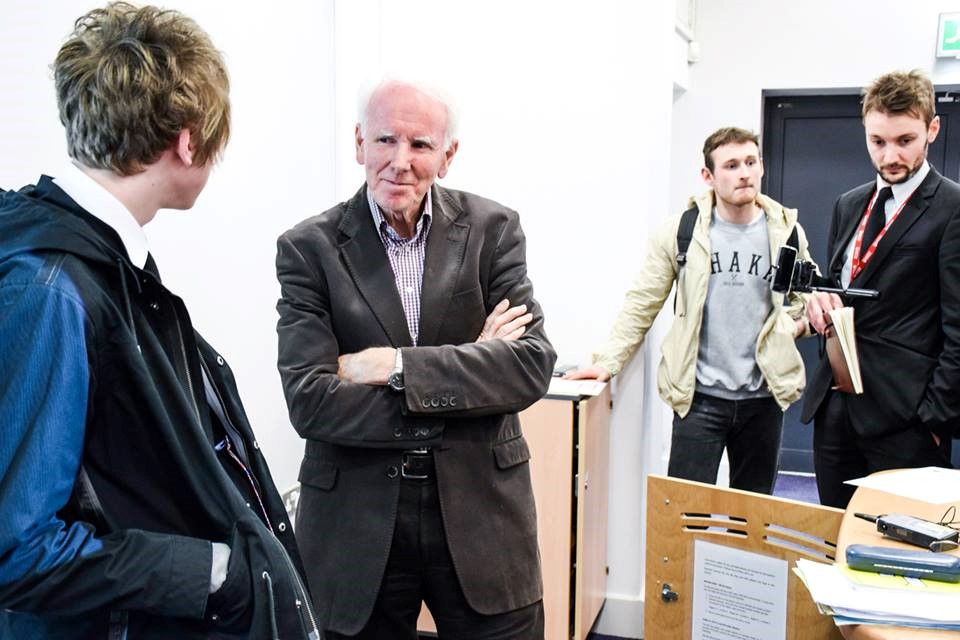CAFOD and Mike Wooldridge OBE inspire young journalists at Leeds Trinity University Journalism Week

BBC World Affairs Correspondent Mike Wooldridge OBE joined CAFOD on the podium at Leeds Trinity University this month to mark the university’s annual Journalism week. St Mary’s Menston sixth form student Luke attended the talk and reports his findings below.
It was an afternoon of absorbing tales from the world of journalism, as BBC World Affairs Correspondent Mike Wooldridge OBE teamed up with CAFOD to inspire the journalists of the future.
The galvanizing event was just one of a variety of guest speakers and workshops as part of Leeds Trinity University’s Journalism Week.
After an introduction from the CAFOD team based in Leeds, Mr Wooldridge wasted no time in immersing the audience in his stories from a career any journalist would dream of. From the release of Nelson Mandela in 1990, to the Haitian earthquake in 2010, the audience was captivated by anecdotes from a working life which Mr Wooldridge describe as “like having a ringside seat at history in the making.”
If any budding journalists present were having second thoughts about their degree, just one hour in this lecture theatre would be enough to set their ship back on course. It made for powerful listening. In addition to a first-hand accounts of events around the world, Mr Wooldridge spoke about the important relationship between journalists and charities such as CAFOD, which can offer insight into part of a story that is unfolding.
A true master of the anecdote, Mr Wooldridge recalled a moving experience in Haiti following the earthquake when Matthew Carter, Humanitarian Director at CAFOD, put him in contact with a local bishop in Port au Prince. The Bishop told him of a special ceremony that was being held to honour the people who had died as a result of the natural disaster and subsequently buried in mass graves, in an area that already held tragic memories for the Haitian people. Mr Wooldridge was then able to report live on the ceremony, form bonds with the local community and bring to the attention of the world the indomitable spirit of the Haitian people. Without CAFOD’s contacts within the Catholic community, and the contacts with journalists on location, the report might never have been made. But Mr Wooldridge emphasised that “you [CAFOD] campaign, we report.”
During the talk, it was made clear that a distinction had to be made between journalists and charitable organisations, with a need for a level of impartiality on both sides and an understanding of their very different roles. While journalists reporting on the work of charities was a positive thing, independence is key to the journalist and care must be taken to ensure that an informative report, does not cross boundaries and become an advertisement.
Mr Wooldridge concluded his talk with a line that I personally found extremely exciting: “If your ambition is to change the world, you will end up frustrated. You should, however, aspire to make the world a better place.”
In an ever-changing industry, with unpredictable stories right around the corner, I think it is reassuring that the journalists of tomorrow are learning from the very best that the profession has to offer.